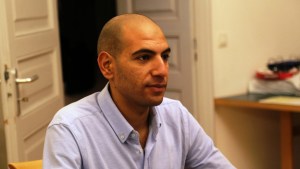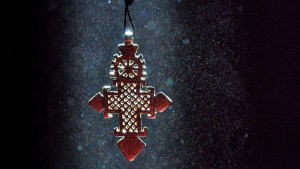In a historical first, a member of Egypt’s Christian minority has become the country’s top jurist.
Egyptian President Abdel Fattah el-Sisi this week appointed Coptic Christian judge Boulos Fahmy as President of the Supreme Constitutional Court of Egypt. The new head of the court, who has served as its vice president, takes over from Judge Said Marei Amr, who resigned for health reasons.
Fahmy, 65, was appointed to the Public Prosecutor’s Office in 1978. He also served as a judge of and later the head of the Court of Appeal. He was also president of the Constitutional Court.
According to Fides, the information service of the Pontifical Mission Societies, the Supreme Constitutional Court of Egypt is an independent constitutional judicial body, established in 1979 to replace the Supreme Court created 10 years earlier by President Gamal Abd Nasser. Its main function is to verify and confirm the constitutionality of laws and regulations issued by the Egyptian authorities. It also resolves contradictions between judgments issued by other courts.
Fides pointed out that Article 2 of the Egyptian Constitution, which came into force in 2014, recognizes the “principles of the Islamic Sharia” as the “main source of legislation.” After the 2011 Revolution, during the time in which the Muslim Brotherhood gained more power in government, the Supreme Court opposed the rigid Islamization programs of Egyptian legislation, the news agency said.
Fahmy’s appointment Wednesday was hailed by many Muslims in Egypt, including Moushira Khattab, head of the government-appointed National Council for Human Rights. Khattab called the decision “historic” and “a giant move” in the field of political and civil rights, according to the Associated Press.
But Ishak Ibrahim, a prominent expert on Christian affairs in Egypt, said the move will have little impact on ending discrimination against Christians, who he said are vastly underrepresented in Egypt’s state institutions.
“It will not have a significant impact on eliminating discrimination and ensuring the opportunity for all citizens with justice and equality,” Ibrahim said in a Facebook post. “We’ll be able to say there’s a significant improvement when we find the percentage (of Christians holding posts) has moved from around 2 percent to a percentage close to their numerical one.”
Christians make up almost 10% of Egypt’s population. Most are Coptic Orthodox, though there are also minorities, including Catholic Copts and Greek Orthodox. Coptic Christians make up the largest Christian community in the Middle East.
El-Sisi has expressed solidarity with the Coptic community, which in the past has been the target of terrorist attacks. In 2018, he appointed a Coptic Christian woman as provincial governor in 2018 – a first. He also allowed the building of churches across the country after decades of restrictions.


